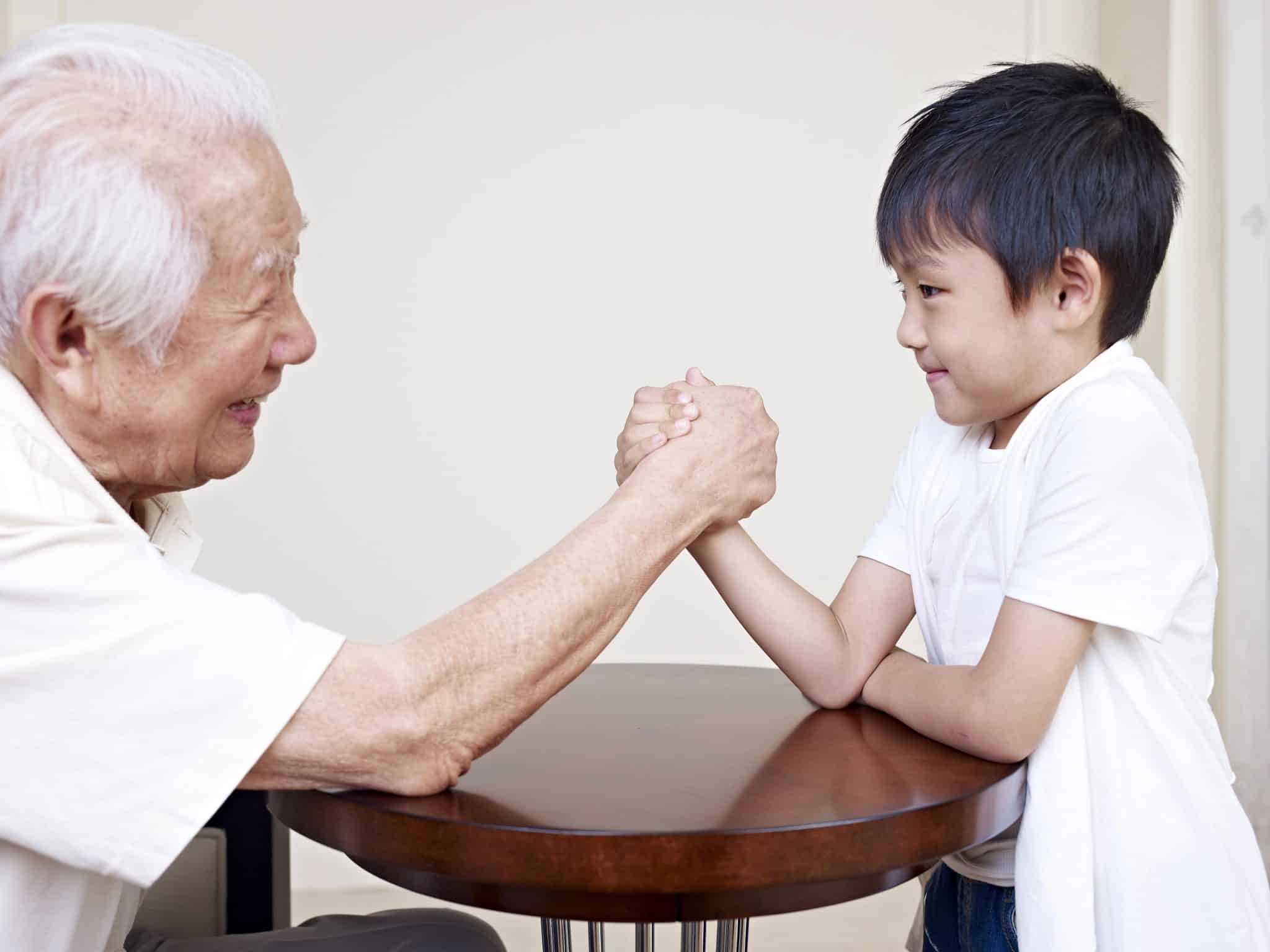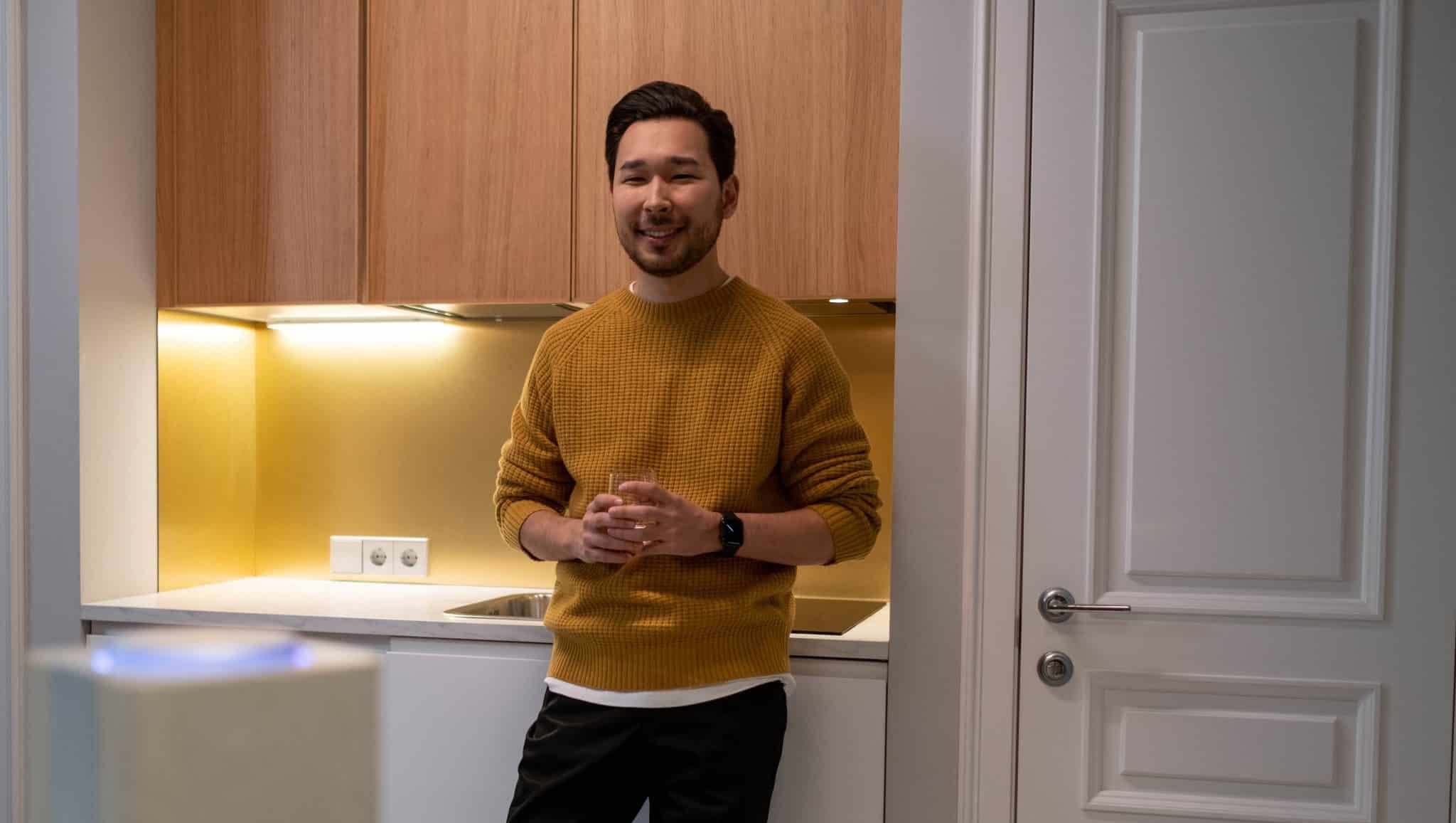“Loneliness is thinking that no one cares”: How to combat loneliness and help those who feel disconnected
by Gemma Koh // December 16, 2020, 3:05 pm

"It is ironic that, in a time when almost everything and everybody is connected at the press of a button, so many people are still feeling lonely," said Ps Timothy Das, introducing the Zoom talk given by Gareth Thomas, a seasoned relationship counsellor. Photo by Kristina Tripkovic on Unsplash.
“Loneliness is not really being alone. It’s thinking that no one cares,” said Gareth Thomas, who at age 14, considered suicide.
The seasoned relationship counsellor – who has done deep research, and taught and ministered in emotional well-being in interpersonal relationships – said this during his talk on Dealing with Loneliness. Thomas also holds a Masters degree in pastoral counselling.
“The one thing that keeps us out of connection is our fear that we are not worthy of connection.”
The talk, held over Zoom in September, was part of an ongoing series from Community Praise Baptist Church (CPBC) to nurture, equip, train and send members and others in the community into various areas of ministry, including healing the wounded.
The key issue in a lot of disconnected people’s minds, Thomas said, is that “they can’t see how people care, and they think in their heart that nobody does”.
“There’s a whole series of reasons behind it. The reality is that many of us feel disconnected.”
Quoting Dr Brené Brown, an American research professor who has studied courage, vulnerability, shame, and empathy, he said “the one thing that keeps us out of connection is our fear that we are not worthy of connection”.
Thomas understands firsthand “how painful it is to feel disconnected and lonely”.
“I don’t want anyone to feel the way I felt,” he told the audience. “If you do feel this way, I want to share some ways that I believe will help you feel connected and not alone.”
Why loneliness hurts
In addition to pointing how chronic loneliness can be bad for the health, Thomas talked about how loneliness also affects the way the brain operates. It leads to anxiety, fatigue, fuzzy thinking, difficulty in concentrating and the ability to focus.
“The lonelier you are, the more sensitised you are to people’s reactions,” said Thomas.
“Your stress level goes up because you’re constantly looking around you at what’s going on. So that leads to high cortisol levels.”
(Cortisol is often called the stress hormone.)
Loneliness leads to anxiety, fatigue, fuzzy thinking, difficulty in concentrating and the ability to focus.
“The higher cortisol levels lead to a hyper-vigilant state for perceived social threats.”
“The lonelier you feel, the higher the number of mirco-awakenings you tend to have when you try to sleep.
“The brain is focusing on what’s around you. Sleep is shallow. And you’re awakened – but not fully – by sounds around you.”
Lonely people also tend to have “memory bias”.
“They perceive a situation or they remember events from a negative perspective.
“The lonelier the person is, the more the brain focuses on their own needs and wants – and not the feelings of those around them.
“So, in essence, you’re less empathic.
“It starts to affect the way you interact with others. They may think, ‘This person doesn’t care; why should I be in a relationship with them?’
“But the person being hyper-vigilant and being less empathic doesn’t truly realise it; they think people are just being more difficult.
“It starts to affect the way you interact with others.”
When they become more and more self-centred, they can feel more lonely.
“Remembering times when they felt lonely is sufficient to make them devalue their relationships. They may think, ‘How come no one reached out to me?’ or “Maybe I’m not good enough’. And so it reinforces how they feel about themselves. Or worsens it.
“Lonely people might not share their true feelings.”
They may say that they are fine, and others may think they don’t need to keep asking how they are.
“So what happens is it reinforces this degree of loneliness that ‘nobody actually understands, because nobody bothers to ask me’.”
God designed us for fellowship
Wanting to feel connected starts from birth, said Thomas, who showed an image of a baby grasping a finger. “It is a natural thing for everybody.
“God designed us for fellowship. ‘He reaches out to the broken hearted and saves those crushed in spirit’ (Psalm 34:18) and Jesus says: ‘I will be with you to the end of the age.’ (Matthew 28:20).”
Thomas received tools for change when he attended a counselling course in 2000, and decided to use them on himself.
“Change requires choice. We can decide whether to be self-focused or other-focused.”
“Some people had a problem with me. So I thought, ‘Let me look at those issues. How can I change? What do I need to change?
“When I became other-focused, I realised that there were things that I could change about my underlying character. And I looked at how I interacted with society, and how I did things, and it changed the way I interacted with others. I felt less apart. It changed me for the better, I think, and my wife will agree with me to a certain extent.”
“Change requires choice,” he added. “We can decide whether to be self-focused or other-focused.”
Thomas offered tips from his toolbox for building relationships with others. Below are a selection:
1. Initiate conversations
“Start with something that’s simple. Maybe at a checkout line, or at a restaurant. Get used to talking to shop assistants.
It’s easier to start conversations when you have a common interest. If you have an interest in cakes, at the cake shop, ask: ‘How do you make that cake? It is really good.’
If talking to strangers is too overwhelming, find a friend to connect you with people with similar interests. It will help build your confidence.
Talk to people who are used to talking as part of the job. Find a pastor who listens. “When you share, they will empathise and help you grow.”
If you can’t meet up with friends, text them constructively. Use a video chat with good people who care about you.
“When you engage with people, you find out who they are, what they do, what they like.”
2. Do something nice without expecting anything in return
Volunteer your time to experience a new and different social environment that is of interest to you – perhaps a nursing home, a migrant ministry, or helping someone move furniture. It doesn’t take a lot of time – maybe an hour or two a week.
“When you become less self-centred … it physically helps your body and you become less stressed.”
“A friend of mine got involved in a soup kitchen. People saw the reality of who he is, and what he’s doing, and they appreciate that. And they want to know, ‘How did you become so kind?’
“It builds relationships because you’re going there regularly. A social synergy is gained from joint action.
“When you become less self-centred, or more other-centred, it physically helps your body and you become less stressed.”
Anxiety decreases. You sleep better, your mood improves. You have better social bonding. “When you carry out random acts of kindness, you have joy.”
3. Become more open and positive
The more you become positive about things (tell yourself not to speak negatively), it starts to change the way your brain operates, and you’ll have a positive outlook towards the people around you.
“If you’re optimistic, and you’re positive, people want to be around you.
“So, change the way you think. You have a choice. I know you want to feel connected. You want to feel loved and appreciated. And that’s normal.
“But the more you demand it, then less people can give. Or they’ve given it and you’ve rejected it and said that it is not enough.”
4. Use social media to make real connections
Social media can be a great asset if you use it to make real connections, to facilitate physical connections such as going out for dinner or meeting in a park.
“But some people use it to show that they have lots of friends, or people they are connected with. And those people can actually feel very lonely.
“There is also an emptiness in knowing that they’re not real friends that can be counted on, and this tends to increase loneliness.”
Thomas cautions against oversharing, which may be potentially used by people with ill-intent to take advantage of you. But “if you put in sensible real information” instead of one-line, smart-alec quips, you’re more likely to get people to connect with you.
5. Meditate before God as you go through your day
“When we do not hear of feel God, we can feel separated from God,” said Thomas. “And sometimes, not fully hearing from God happens even in the Bible.” (1 Kings 18:22)
“Not just the Bible, but through people, through pastors, all sorts of different ways, God is always speaking.”
Thomas also pointed to the Sons of Korah and Psalm 88: 13-14 which was negative all the way through. But also to other expressive Psalms written by the Sons of Korah, where “God responded, not in a way they expected”.
“God will connect. We have to understand how He does,” said Thomas who found 36 different ways that God speaks to us. “Not just the Bible, but through people, through prophets, through pastors, all sorts of different ways. God is always speaking.”
“Our deepest transformations can take place in the wilderness where we chose to be guided by the Truth. You can find purpose in the wilderness.”
“We all need to connect with something that’s transcendent, something that’s bigger than ourselves. And when we do so, it actually builds us up inside.
“God will connect. We have to understand how He does.”
“Meditation on Scripture can bring peace, it can bring relaxation and help address issues.
“Meditate on the nature of God’s will and God’s purpose for us. If God has spoken to you through someone, or if you’ve been prophesied over, pray that into existence.
“If something’s missing, God will show you how to connect and you’ll know that God is with you in this journey.
“Journalling, writing poetry, songs can also help you process your emotions.
“Praying with your church family provides support. It’s a community where you pray for each other, listen to each other, encourage and strengthen each other. It’s a key support group for every member.”
6. Receive help to be self-aware
“Desire the truth in your inmost parts. Psalm 51:6 talks about this with David.
“Seek help from, or listen to, someone who cares for you, who does not have any agenda except to see you well.
“They will gently expose the lies in your upbringing, things that you believe, but are not true.”
“Listen to someone who cares for you, who does not have any agenda except to see you well.”
As children, sometimes an adult would speak to us forgetting that we’re still children, said Thomas. We may take on their negative thoughts which fester in us.
“They can become lies which distract, or take our self-esteem and self-worth away.
“Good people can help you realise how your reality has been distorted and how it has impacted you. And lead you out of the maze of corrupted self-image so that you become self-aware.
“And this will help you walk in the full truth of who you are, and help you realise that many people actually care for you.”
7. Be careful of predators
People who care about you can also gently expose the part-truths that you’ve heard from people who are predators, who speak things which sound partially true, but are not fully true.
“Predators target lonely people by controlling them with a fear of being disconnected. They want to control others by speaking part-truths to cloud their minds. What happens is that you feel understood, but they’re not telling you the whole truth.
“Their aim is to get the target to believe that no one else will understand them. They use shame to keep them under control. They get them to do things which they wouldn’t otherwise. They want them to feel that, if they leave this relationship or organisation, they will be alone out there.
8. Connect with animals
Being around animals brings down your blood pressure, said Thomas. “Your stress comes down, and you can engage more easily with others.”
If you are not allergic to animals, consider walking someone’s dog or going to a café with animals.
He pointed readers to the Salt&Light article on Cathy Livingston, a therapist based in Singapore, who uses horses to help clients who have anxiety, depression and those who have gone through trauma.
Extending a hand
Studying statistics from the US, Europe, New Zealand, Australia and Singapore, Thomas found some fundamental similarities.
The loneliest age group belongs to those between the ages of 16 and 24. “Their social networks are unstable and they have changes in schools. They are trying to understand their identity; physical changes are still going on, and puberty is still finishing off.
“Everyone single one of us has felt lonely at some point.”
“Young people can feel vulnerable to exclusion. Adolescence is fraught with tension between wanting to belong and wanting to be an individual.”
“Also, look out for the elderly or the ill who have mobility issues or eyesight problems. Or someone who has gone though enforced retirement or whose partner has recently passed away.
“If you know people with these issues, reach out to them and connect with them. Offer practical help.”
Do not imply pity. Find out who they are through spending time with them, drawing them out. Find out what they are interested in and engage them.
“People don’t care how much you know until they know how much you care.”
If they are introverted or have a hearing aid, they may take a longer time to respond. Give them time to answer each question.
“Help them look at their situation from a positive perspective. Come alongside them to help them achieve short- and long-term goals.
“Be there when you promise to be there.
“Everyone single one of us has felt lonely at some point. When you meet somebody that’s lonely, tap into how you felt and say, ‘I get this. Share with me.’
“People don’t care how much you know until they know how much you care,” said Thomas, quoting American President Theodore Roosevelt.
Click here to watch the webinar, Dealing with Loneliness, held on September 19, 2020.
STORIES ON OVERCOMING LONELINESS:
“I have a plan for your life”: God tells 14-year-old on his 9th dice with death
We are an independent, non-profit organisation that relies on the generosity of our readers, such as yourself, to continue serving the kingdom. Every dollar donated goes directly back into our editorial coverage.
Would you consider partnering with us in our kingdom work by supporting us financially, either as a one-off donation, or a recurring pledge?
Support Salt&Light


